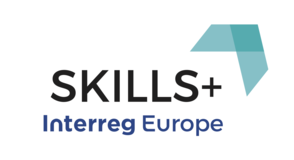

4) Janusz Kahl, CEO of the South Poland Clean Tech Cluster (Poland)

1. Was it the first time for you to participate in a peer review?
Yes, it was the first time, so I do not have so much experience from the previous participation.
2. Why did you decide to participate in the SKILLS+ peer review exercise?
As Cleantech cluster taking part in creating and also influencing local and regional policies we are interested in all kinds of activities involved in cooperation with our members - SMEs, ICT companies, rural municipalities and our external partners. Promoting innovation especially among SMEs is one of our most important goals. Knowing what other regions in EU are doing in order to support competitiveness of their companies and develop and promote regions industrial specializations and digital transition is also important for us.
3. What did you like most about the peer review?
Meeting new people involved in this project was very important for me. We face the same problems no matter where we leave. It is important to participate in international knowledge and experience shearing in order to bring some different and new solutions for the old problems. The best innovations are being created in international groups and communities, that are able to look at the same problem from different points of view. We met a lot of open minded people representing responsible regional authorities, institutions and organizations, as well as SMEs. In order to make EU stronger and more competitive we need to cooperate much more internationally on local level.
4. How will the learning gained from the peer review be helpful in the future?
Thanks to participation in this project we learned not only about other regions approaches but what is more important about our own strategies and policies. By comparing different approaches we can make our own strategies better and more effective. We learned many interested people, organizations and institutions to know, which creates a lot of opportunities and possibilities for the future cooperation and knowledge exchange.
5) Una Rogule-Lazdiņa, Senior officer of the Sectoral policy department in the Ministry of Economics of Latvia
1. Was it the first time for you to participate in a peer review?
It was my first experience in Interreg project as well as participation as a Peer Review member. As I am a policy maker of the EU funding programme for the training of employees at the Ministry of Economics of Latvia participation as Stakeholder in the Interreg Skills+ project was new and useful experience for me.
2. Why did you decide to participate in the SKILLS+ peer review exercise?
Finland poses 2nd in DESI 2017 (The Digital Economy & Society Index), which confirms that the country is one of main leaders in digital progress in Europe. Especially, human capital with high e-skills, including elder people, is on the highest level in Europe. Additionally, electronic public services (e-administration, e-government) are very well-developed (2nd in Europe). Latvia is just 19th. Latvia belongs to the medium performing cluster of countries. It was interesting to find out success story of Finland and Kainuu as well.
3. What did you like most about the peer review?
It was great share of good practices and experience for Host Region and also for Peer Review team. Latvia could get more ideas from Kainuu region Stakeholders. We had a good Team leader Dariusz Wilk who had made even deeper investigation of the Kainuu region. Peer Review team was prepared for the visit as well as the visit was organized very well from the Host Region. The agenda was strictly followed.
4. How will the learning gained from the peer review be helpful in the future?
The most relevant to me was a presentation of the DiHyTe and scype meeting with TEKES about Digiboost project and other activities of TEKES. During the DiHyTe presentations I was impressed with various technological solutions, such as simulation exercises, various activities, such as the ability to pick berries, mushrooms, etc. in the woods in interactive way for people with disabilities who even cannot move ect. Unfortunately we were not able to see and try these various technological solutions. TEKES informed about various activities and the main thing is that most of the projects are state/municipality funded. There were no workshop organised, however discussions seemed to be really useful for Stakeholders. Learning gained is useful for policy making for ICT skills improvement in Latvia.